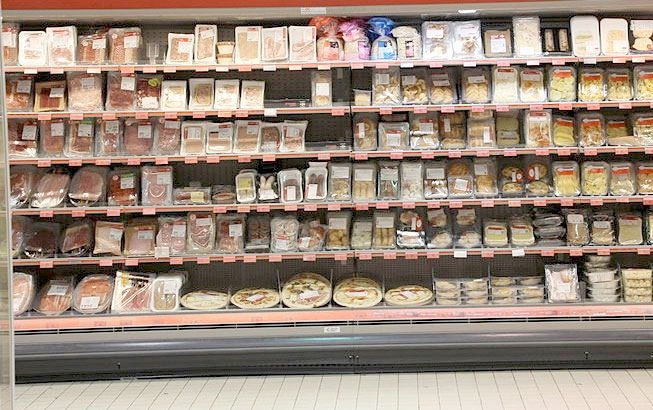
Supermarkets and the public are paying the price for the purchasing tactics deployed by retailers for decades according to the National Beef Association.
"They adopted a bullying culture aimed exclusively at securing as much farm food as possible" said Chris Mallon, NBA national director.
"The result is tortured supply chains that add so much unnecessary cost that short cuts on quality and traceability, and even cheating by some suppliers, was inevitable".
But the chief executive of Iceland supermarket chain Malcolm Walker said the horse meat scandal is a problem not caused by supermarkets but by local authorities and the catering industry.
"Supermarkets shouldn’t be blamed. British supermarkets have got a fantastic reputation for food safety" Walker told the BBC's Andrew Marr Show.
"If we're going to blame somebody, let's start with local authorities because there's a whole side of this industry which is invisible, that's the catering industry.
"Schools, hospitals, it's a massive business for cheap food and local authorities award contracts based purely on one thing: price.”
Mallon called for a reverse in the 'misguided tactics' in food supply chains. "This can only be done if a real and permanent effort is made to correct decades of misapplied endeavour and a new approach to food purchasing is adopted."
It is a view shared by the National Pig Association who recently blamed 'supermarket greed' for the horse meat scandal.
The fear of eating contaminated beef has caused many shoppers to be wary of all meat sold in supermarkets.
Farming groups have blamed retailers who 'habitually drive down meat prices' below the cost of production causing a lapse in quality or an adulterated content of the product.
"Where on earth do they think this cheap euromeat is coming from?" demanded Richard Longthorp, chairman of the NPA.
"If you consistently buy something below the price at which it can be produced, you must know that corners have been cut in quality, or safety, or legality, or all three."
Mallon said: "The multiples must start by focussing as much buying as possible on the high quality, high provenance, food that is grown on nearby British farms. If they do this they can secure both current and future supplies of essential products as long as they also make sure that all participants in the supply chain adequately cover their costs."
"One of the most immediate moves should be the elimination of profit taking, middlemen, like processors who add avoidable cost to the supply system at the same time, as has been made obvious over the last month, they reduce the control retailers should have over the origin and provenance of their purchases."
"The on-going horsemeat scandal has demonstrated conclusively that consumers only get what they pay for and that continued price reduction will jeopardise food quality".
"Concentrating on cheapness is myopic. In real terms British consumers are currently paying 20 per cent less for food than they did a decade ago."
Retailers have confirmed to Environment Secretary Owen Paterson that they expect the majority of their tests on processed beef products to be completed by Friday.
Retailers and the British Retail Consortium (BRC) met Paterson for the first time since test results covering 65% of the targeted products were published Friday.
Speaking after the meeting, the BRC also said that retailers are doing all they can to engage with consumers on the issue and establish the extent and causes of failures in the supply chain.
The last report said five brands tested positive for horse meat against the Food Standards Agency's threshold. These are the five own brand products that have already been notified to the FSA and withdrawn from sale over the same period.
Failures in the supply chains of supermarkets were highlighted by farming groups like the National Beef Association.
"The squeezing of their suppliers margins and the relentless search for profit through buying cheaper product is the reason horsemeat is in their products" the association said.
"The supermarkets spend millions on creating and protecting their brand but what is behind that brand is reflected in their own brand economy burgers. They are brands are funded by the exploitation of the consumer and the supplier.
"Supermarket own brands contained horsemeat and as such it is their name on the packet and their responsibility to be sure what is in the product. They cannot blame anyone other than their own buying policies for their failure to supply their consumers with what it says on the label."
British Retail Consortium Director General Helen Dickinson said: "Test results have continued to come in over the weekend. The labs are working flat out and our members are confident that the vast majority of testing will be completed by Friday."
